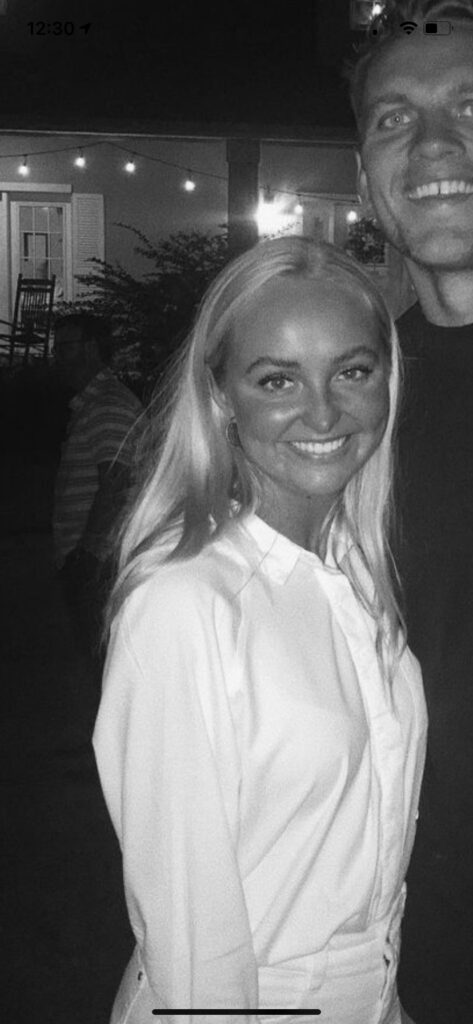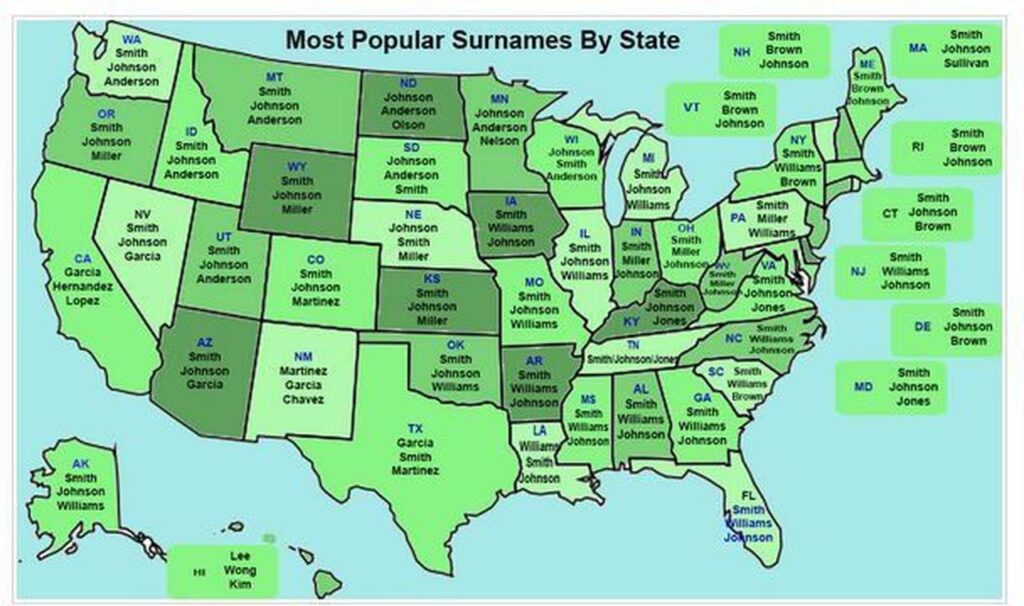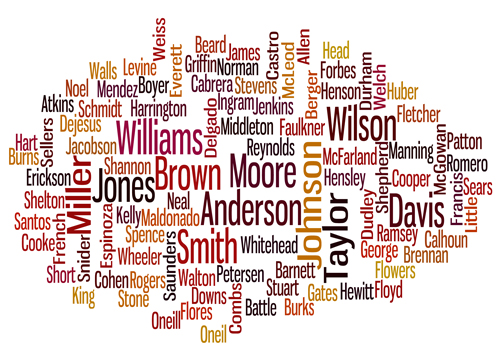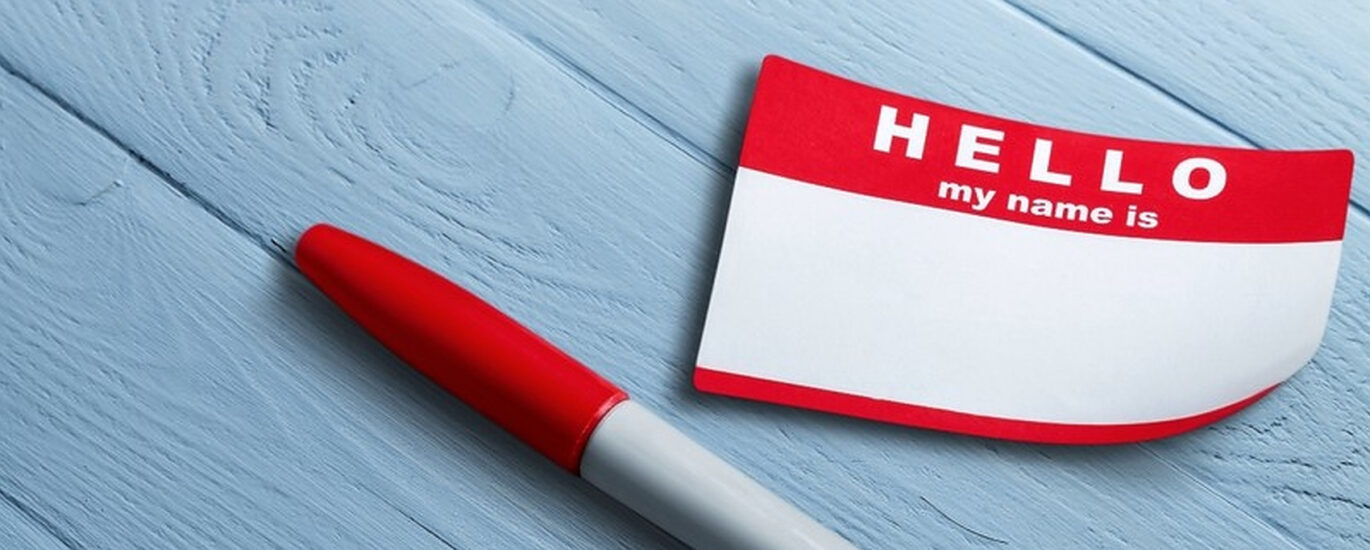“Why do patronymics continue to exist?”
On today’s episode, we interrogate the tradition of patronyms and, in the process, explore the history of coverture laws, marital customs, and more as our guest—Amelia Hapgood—delves deep into the question of “what’s in a name?”
Our Guest
Amelia Hapgood

Amelia Hapgood is a BYU student, a newlywed, a devout feminist, and a wanna be runner. She is from Arkansas, and loves being in a family of all girls!
The Essay
I want to start by posing a question to any men listening: Imagine if your name was Erik Annasdaughter, or Mark Rachelsdaughter. Isn’t that bizarre? I know it sounds ridiculous, but that is literally what “Kate Anderson” or “Sophie Johnson” is. Apparently, this sort of matronymic convention (which is to say, using a mother’s name to name a child) is common in other cultures, such as in Iceland! But here, in America, we don’t even consider the possibility, so it blew my mind when Amy shared this idea with me. When you flip the tradition, it seems unnatural to us, and ultimately that is because we live in a patriarchal society!

So, that’s why today I am excited to talk all about a certain patriarchal tradition, which is patronymics! For those who don’t know, patronymics is a fancy word for the tradition of women taking their husband’s last name, and passing that paternal name down to their children. I can’t wait to get into this, I have so many opinions and thoughts to share about this tradition, as well as some of the interesting history behind it. I honestly cannot comprehend that this tradition is continuing in the 21st century in the United States of America, but it is! So all I can do is analyze it and defy it.
Let’s do a quick introduction before I get into it though. In case you already forgot, my name’s still Amelia, and I am a 21-year-old college student at Brigham Young University, studying sociology and global women’s studies. I hope to start or work for a non-profit that helps women and refugees (so if anyone listening has any opportunities, please reach out to me!). I am a devout feminist and I love learning about women’s stories and experiences. Recently, I got married to my husband Tyler, so the topic of this episode has been very relevant in my life lately. I also want to make it very clear that I have no intention of belittling or offending any person who decided to take their partner’s last name. My best friend Grace always says that an empowered woman is a woman who does whatever she wants, and I believe it. I know that not all women have the privilege of considering things like this, so I am so grateful to be able to make this decision. I also am no expert by any means, on anything really, but especially on this…I am passionate though, so here I am!
I grew up as one of four sisters—all of whom look alike—in a lovely home in Arkansas. It was the sort of situation where our high school teachers knew all the Hapgood girls, since we just kept trickling in. That name, Hapgood, means everything to me. In Middle English it translates to “have God,” and I wore that reminder with pride growing up. I thought it was so cool.
Then it hit me, freshman year of college, that—when and if all three of my sisters got married—the Hapgood name would die out. There are no male cousins on my dad’s side, so the name would literally end with my youngest sister. That devastated me. My name was my family. My history. I’d grown up hearing about Shadrach Hapgood, a 14-year-old little boy who left Gravesend, England and arrived at the Boston Harbor weeks later. I’d been told tales of Isabel Florence Hapgood, who was an expert in many languages, a linguist, a translator, and a close friend of Leo Tolstoy. In family stories, Florence would go stay at Tolstoy’s villa, and there are still many Russian novels that have been translated into the “Hapgood” version, which I LOVED growing up.
Now, I know nobody cares about the history of a name and a family they’ve never heard of, but this all meant something to me. These ancestors and stories meant something. It was a pivotal moment when I realized that the Hapgood name would be over in our line—I remember crying. I felt a deep hurt, as if my history, the history of my family, was being erased. Of course, it wasn’t, and never will be, but it hurt. I considered my history to be intractably tied to this name.
“Hapgood”: my accomplishments, my failures, my dreams, my hopes, every roll-call in elementary school, every tryout, every heartbreak, every award, every book I read with my Dad.
The name was who I was, my foundation. I was raised in a Hapgood home, to Hapgood parents. It was Freshman year of college when I decided I was going to go against tradition, against the practices that I had been raised to adhere to. I decided I was going to keep my name.
And, I was like, Why? Why is this still a tradition? Why do patronymics continue to exist? It isn’t fair! And it is so blatantly sexist! It doesn’t make any sense to me! I didn’t realize it at the time, but my feminism was awakening.
So, I told my husband Tyler that I was keeping my last name, and he was very supportive. I think he struggled with it a little bit at first, but ultimately was understanding. I realized that this is a choice that should be thoroughly discussed before marriage, instead of just assumed. Because it is always assumed. We are two separate individuals, with separate childhoods and names, maintaining our individual identities.
I saw a comment on the BDP Instagram which said that basically, “a strong partnership is not based on a name, but based on the actions in the marriage”, which is absolutely true. So, one could argue, “then it is not a big deal if you change your name, because it isn’t important anyways! It is all about actions, not names!” Again, it should be a decision independent from anything else but an inner desire and truth that a woman has and feels.
So, like I said, I was married a few months ago, and naturally I have been in the thick of the incredulous gasps when people hear I am keeping my last name, like it is the most radical thing. I have learned that a lot of my relatives are a little less open to this than most of my younger female friends, just because of generational gaps etc… I opened so many letters from kind guests that said “To Mr. and Mrs. Tyler Mumford,” where I was completely erased. How is that the norm?
“Hapgood”: my accomplishments, my failures, my dreams, my hopes, every roll-call in elementary school…
People tell me to take my husband’s last name because a family needs to be unified under one name. But isn’t a hyphenated name still one name? Others have said they feel so bad for kids who have hyphenated names, because it is so complicated. Again, I am like, it is just two more syllables! I would’ve KILLED to be Hapgood-Parry, because I am part of my mother’s history and family (the Parry’s), and I love them. It isn’t as complicated to have a hyphenated name as everyone says. We really need to de-stigmatize that, so it happens more often. I think it would be so cool to live in a society where everyone has hyphenated names. In Spain and Chile, custom dictates that women keep their surnames. Where did we go wrong?
I also hear that I should make my “maiden” name, my new middle name. Again, another piece of me disappearing. Kathryn is my middle name, not Hapgood. Kathryn has been in our family forever on my mom’s side, and I love it. It’s like, with all these unsolicited suggestions, I knew I was unwilling to compromise my namesake for society’s standards and traditions. The barrage of unwanted advice has been proof that we absolutely continue to live in a patriarchal society and world. Again, I know this might sound dramatic to some of you, but I have just grown up in a religion and lifestyle where names mean SO much. In the LDS faith, we get sacred names in our holy temple. We get baby blessings, where our names are declared in front of everyone. So, naturally, I have valued my name.
Again, I don’t want to make it sound like someone who took their husband’s last name didn’t value their own name. An empowered woman does whatever she wants.
One time, I was at work and a man had recently gotten married to a woman. When she told me her last name, he snickered and said “But not for long!” And it was so weird and belittling and made me so uncomfortable. Like, in a short amount of time, her name will be gone! And he was so excited. I could tell that this man had never considered another way, where his wife would keep her own last name. It was just the right thing, the correct thing, the norm to him. And it was unnerving.
It got me wondering, where did this tradition even start? What is it rooted in? And how can it have lasted for SO long, especially in a country where men supposedly are equal to women….?
Historically, surname’s were not that important because most people were only known by their “Christian name” which was given at baptism. It eventually got too complicated to differentiate between so many “Thomases” and “Annes,” that surnames were born, usually from one’s occupation, location, or lineage. The practice of a European woman taking her husband’s last name is a vestige of a law that dates back to the 11th century. Sometime after the Norman Conquest, the Normans introduced the idea of coverture to the English, and the seeds of a long-standing tradition were planted.
Online, I saw a definition of marriage that said “it is an institution born from a practice designed to entrench women’s subordination, bypassing them on like cattle from one man (father) to another (husband). And name-changing for a long time was a key symbol indicating that a married woman was her husband’s property.”
Obviously, marriage is different today for a lot of people, so this definition seems a little intense and dramatic.
I am an equal partner to my husband, and he would never treat me as less than, and I know many women in the same position. So, why then, is this tradition still continuing? There are a plethora of possible reasons: many women want to, it could serve as a unifying symbol that ties the couple together, it solidifies commitment, it’s “tradition,” or in my opinion, because we continue to live in a rigorous patriarchal society where not enough people have questioned the power rankings to notice something is off.
In Spain and Chile, custom dictates that women keep their surnames. Where did we go wrong?
There are several older women in my life who are role models of mine. One of them is a woman named Stephanie who is so outspoken and brilliant. She tells me that, to this day, she mourns the loss of her name, the one she grew up with. She said something so interesting,
“I think when one gives up one’s name they literally give up their identity. And I also think that’s why some marriages struggle right out of the gate. The wife just gave up a huge part of herself. And as time goes on women subconsciously start taking on their husband’s thoughts and beliefs and in my sisters cases they have basically taken on their husbands brains. They have lost the ability to think for themselves. I think it all starts when they give up their names. It starts the process for many women to forget that they are an individual with needs and desires and passions. They focus so much on their husbands’ needs that they literally lose who they are. Giving up one’s name is the catalyst for all of this. Having said all of that however, because we live in a patriarchal society even if one does keep one’s name so many women still end up losing who they are and taking on their husband’s way of life. But keeping ones surname will at least make it easier to stay focused on ones-self and a good reminder that even though couples “come together” and “become one” when they marry they are still individuals who have had very different experiences and as a result their perspectives can and should be different. But unfortunately so many women end up taking on their husbands perspective on life. It’s all very tragic. I’ve seen it happen first hand to 8 out of my 9 sisters.”
I saw on the BDP Instagram post too that so many other women felt the same way, even after decades. They were mourning this loss. Workers at the social-security office would try and talk them out of hyphenation, because it is “too inconvenient”, and family members would say to “just take your husband’s last name, it’s easier!” All around these women are pressured by society and family and tradition. I wonder how many women I know would’ve kept their last names, had they been in a more welcoming environment and society.

Also, this is not even including the complexity and difficulty of legally changing one’s name. Women have to apply for a new drivers’ license, passport, and talk to auto insurance, social security administration and more. It is daunting. And not cheap. So, it is no surprise that more women are opting for a hyphenated name , so both sides of the family will be equally represented in the last name of their children.
Recently, I read an article in a magazine called “Seattle Bride,” about coverture, which is the legal status of a married woman considered to be under her husband’s protection and authority. The article said that “coverture laws also prevented women from entering into contracts, engaging in litigation, participating in business, or exercising ownership over real estate or personal property. As succinctly stated by former Justice Abe Fortas of the United States Supreme Court in United States v. Yazell, “[c]overture… rests on the old common-law fiction that the husband and wife are one, [and] the one is the husband.” I felt a pang in my chest when I read that.
I think we, as a society, need to think more critically about this. This tradition that began in England in the 12th century has not died with many legal sexist laws. And, I swear it is time to consider the effects of this tradition.
If I had taken my husband’s last name, I would feel a little bit like I was being erased. Spending my whole life as a Hapgood, and then the next day another name; it seemed traumatic to me.
Today, 20% of women opt to keep their last names, and when I read that number, I knew we had come a long way. Women like Kate Chopin, Virginia Woolf, Gloria Steinem; would be proud. But we still have such a long way to go, to support these women that want to keep their last names but don’t, to destigmatize hyphenated names and to end the tradition of patronymics.
There is something so exciting about the fact that my kids will have my name, too. Because they are half of me. After all, I will spend nine months creating their cells, hair, skin, bones, so there is no way they are just getting my husband’s name. To me, it can be such a good marker of equality when both the parent’s names are present, instead of one disappearing.
And yes, I understand that my surname “Hapgood” is still patronymic since it stems from the men in my lineage. My response to this critique is simple—I wasn’t around back then when patronymics began and was embedded in culture. But I am here now! And I can do my part to slowly break the tradition. I think that’s all it takes, is a few women who break the tradition, until the numbers grow. There are so many options, whether it is making up an entirely new name or just abstaining from taking your husbands. So yes, “Hapgood” is patronymic, but at least I am actively making the choice and effort to keep it instead of assuming a new name that isn’t mine. I will go against this patriarchal tradition in any way I can.
This all being said, I am so grateful to be a woman. It is so special and incredible. And hey, maybe one day we can switch this all around and live in a matriarchal institution—a world where the maternal name is passed down, because the women are the ones creating life!
Where did this tradition start? What is it rooted in?

And how can it have lasted for so long?
Listen to the Episode
&
Share your Comments with us below!





